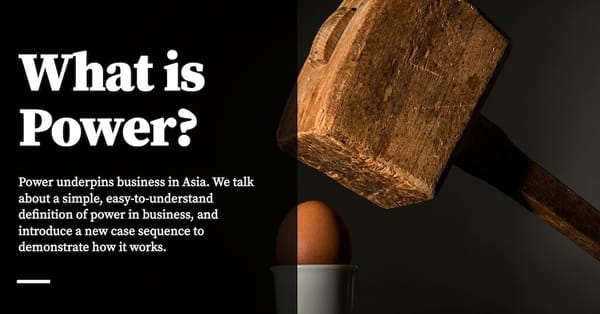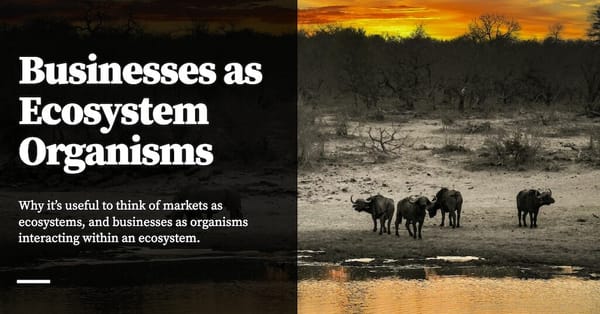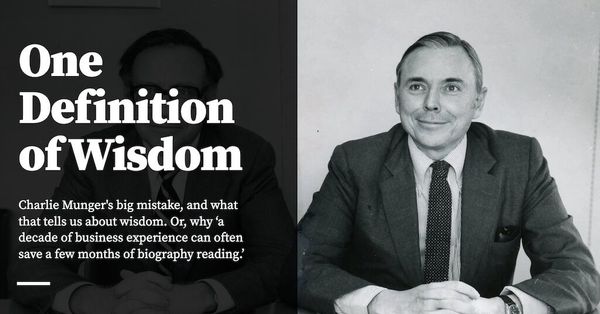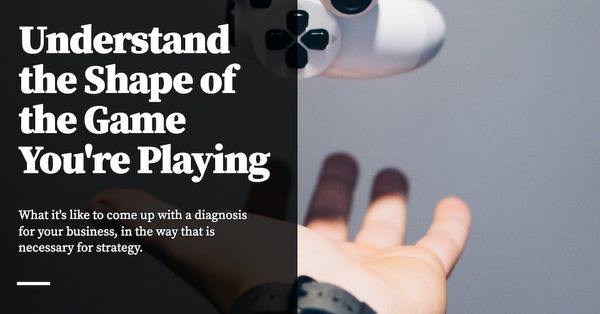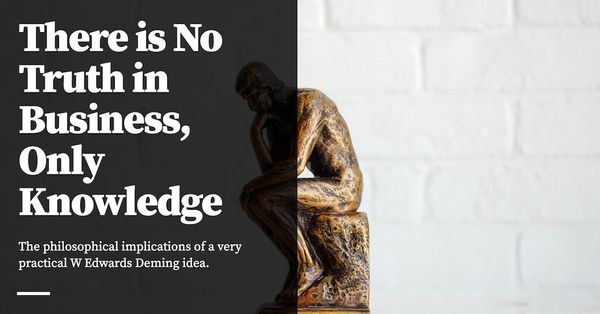‘Market’ is a shorthand for ‘factors influencing the market’, which is one of the three legs of triad mental model of business expertise. If you don’t know what that is, read this page first.
The ‘Market’ topic cluster includes strategic adversarial thinking, though large bits of strategy also involve operating well. The big framework in the Market topic cluster is the 7 Powers framework by Hamilton Helmer. But Market covers other things. For instance, you need to understand the shape of the game you’re playing — which in turn means a deep understanding of your customers, your competitors, your positioning against those competitors, the threat of new entrants, and how that can change over time. We also cover thinking methods that make it slightly easier to reason about adversarial competition (particularly in a business context).
7 Powers
7 Powers by Hamilton Helmer is probably the best framework we have right now for thinking about competition in business. You may treat the following series of articles as a loose cluster of ideas around the framework.
- 7 Powers Summary (members only)
- 7 Powers in Practice
- Take a Simple Idea and Take It Seriously
- Cultural Advantage is Counter Positioning (members only)
- Is This a Moat: PayPal and Mailchimp’s Algorithmic Advantage (members only)
Series and Guides
- The Incentive Series — How do you use incentives as a method to understanding customer behaviour (in order to sell to said customers)? This series tells the story of a multi-year attempt to sell to the food & beverage (F&B) industry, and how understanding F&B industry incentives eventually helped us crack that nut.
Notable Articles
Some notable Commoncog pieces in the Market topic cluster.
- Much Ado About the OODA Loop — Boyd’s ideas as a model for adversarial competition.
- Good Synthesis is the Start of Good Sensemaking — Ostensibly about adaptation in the face of uncertainty, but contains an explanation of process power as competitive advantage.
- There is No Truth in Business, Only Knowledge
- Are You Playing to Play, or Playing to Win? and the follow-up, The Dangers of Treating Life as a Game — only tangentially related to competition in business.
- What I Learnt from Complexity followed by Dancing Landscapes in Business
- Obviously Awesome book summary — arguably the best book on positioning available today.
- To Get Good, Go After The Metagame — introduces the metagame as a concept, as applied to business.
- Competitive Arbitrage (members only)
- Only the Paranoid Survive book summary.

